Writing worksheets activities for Ages 4-9
8 filtered results
-
From - To
Discover a vibrant collection of writing worksheets and activities tailored for children ages 4 to 9! Our interactive resources promote early literacy skills, helping young learners express their thoughts and creativity through writing. From engaging prompts to fun letter formation exercises, these worksheets are designed to make writing enjoyable and productive. Parents and educators can easily access these printable resources, ensuring that every child has the tools they need to develop their writing abilities at their own pace. Explore our diverse activities that build confidence and foster a love for writing in the early years. Begin the writing adventure today!
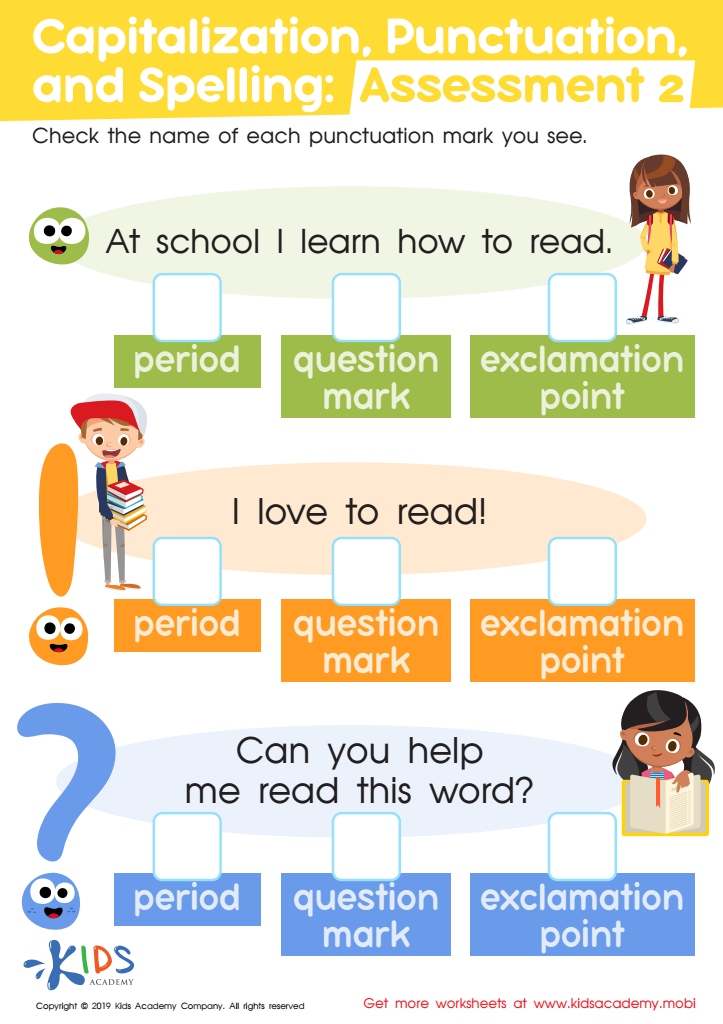

Capitalization. Punctuation. Spelling: Assessment 2 Worksheet
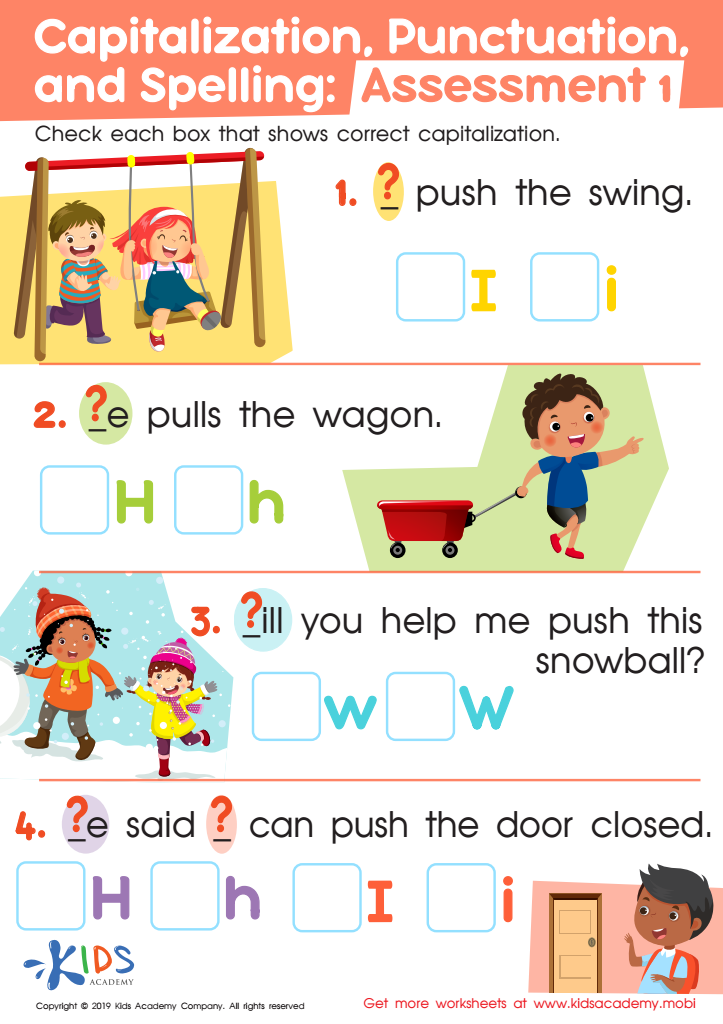

Capitalization. Punctuation. Spelling: Assessment 1 Worksheet
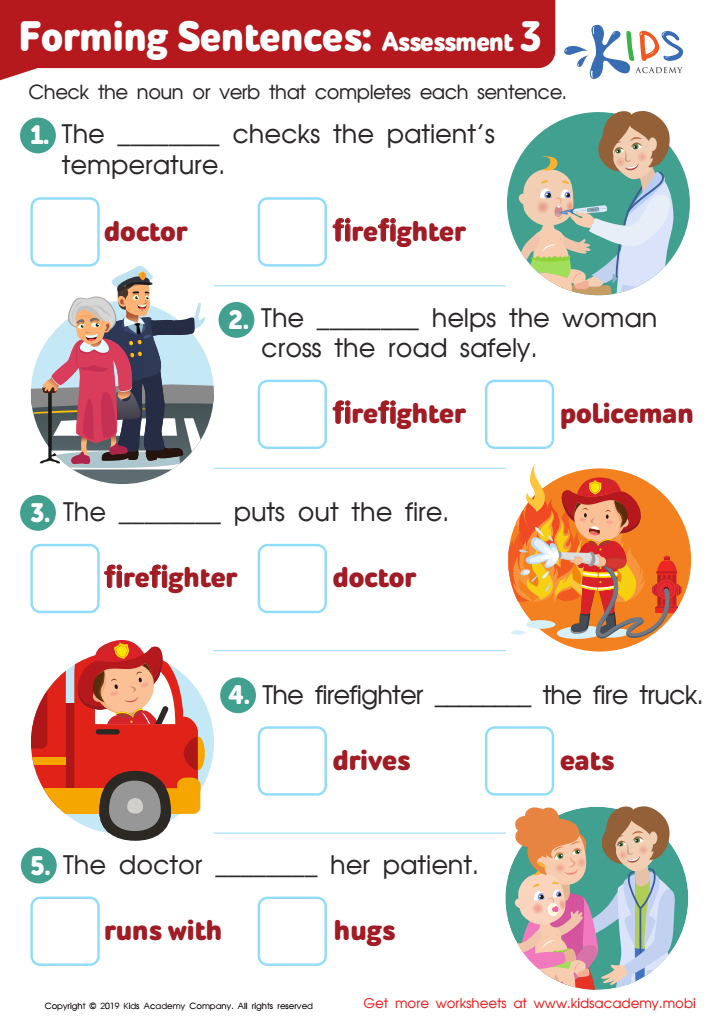

Forming Sentences: Assessment 3 Worksheet
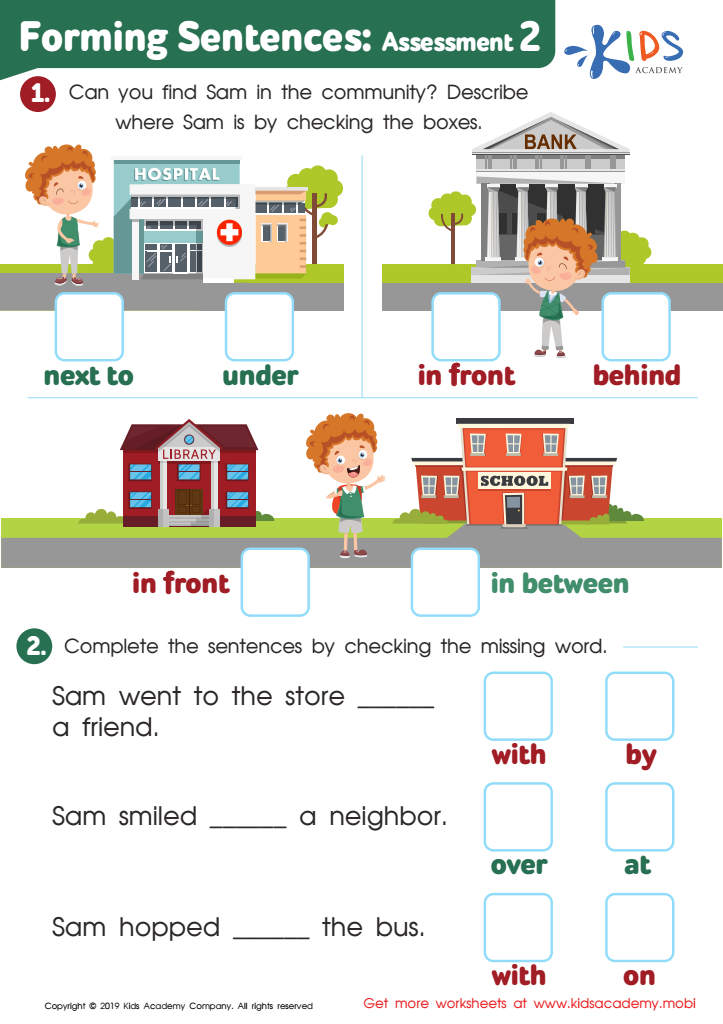

Forming Sentences: Assessment 2 Worksheet
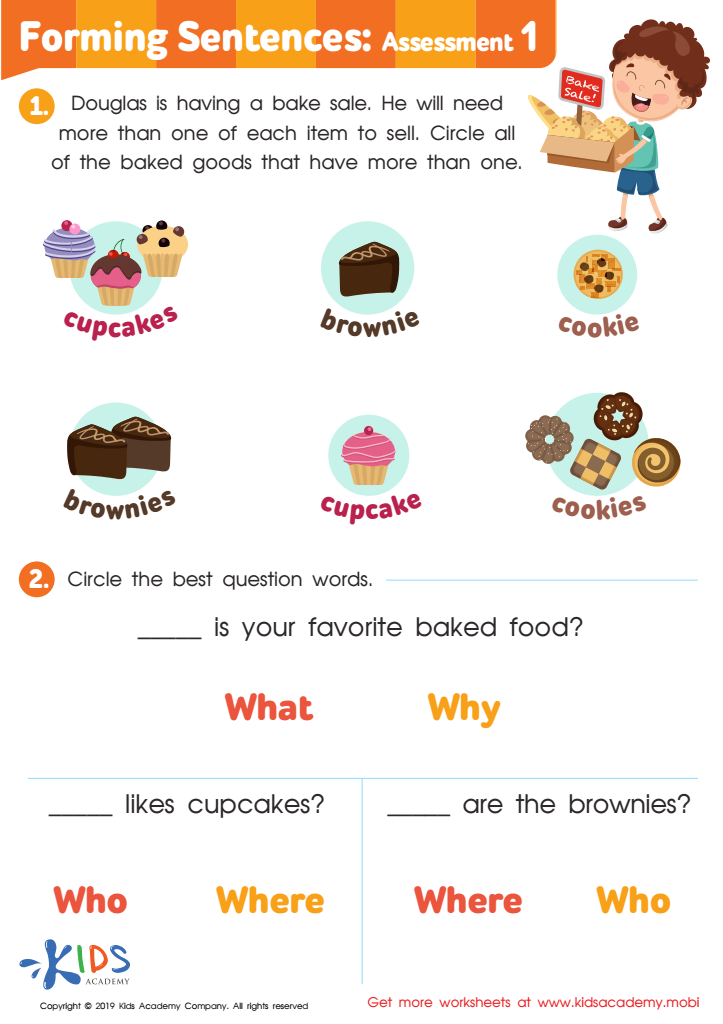

Forming Sentences: Assessment 1 Worksheet
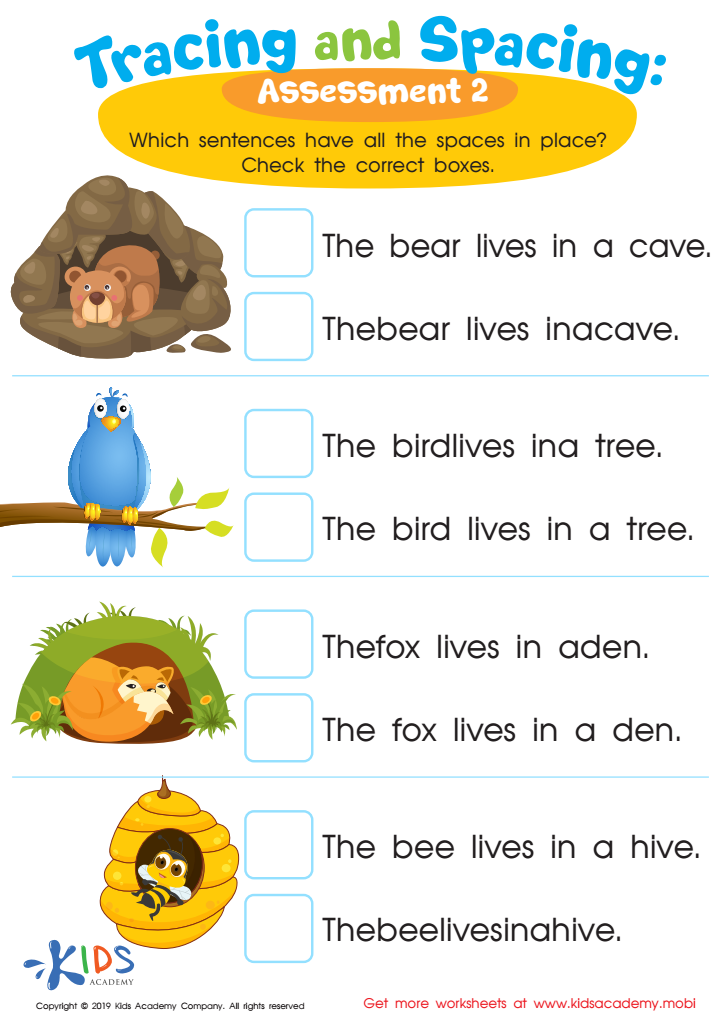

Tracing and Spacing: Assessment 2 Worksheet
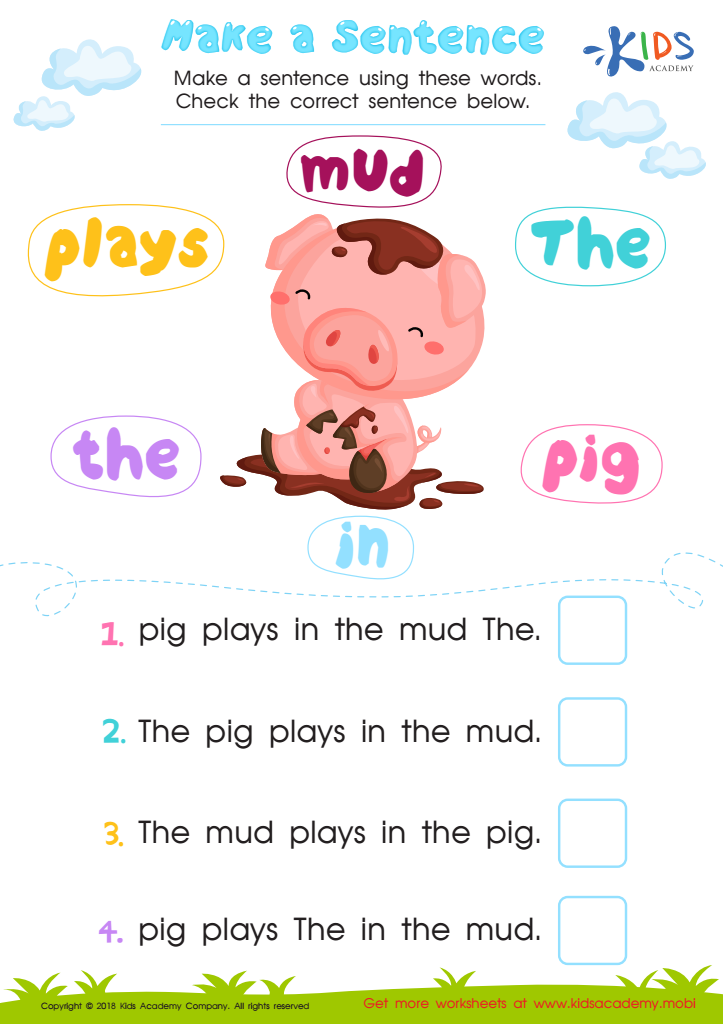

Assessment: Make a Sentence Worksheet
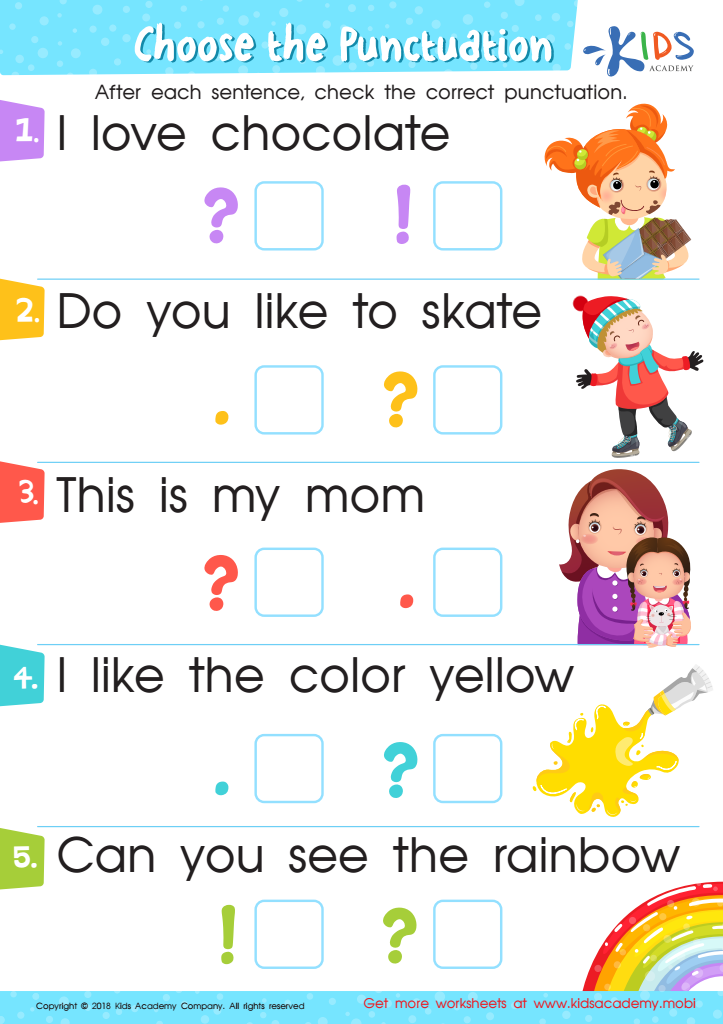

Choose the Punctuation: Assessment Worksheet
Writing activities for children aged 4-9 are vital because they lay the foundational skills necessary for effective communication and critical thinking. Early writing helps develop fine motor skills through activities like tracing letters or forming shapes, ensuring better hand-eye coordination. At this age, children are also forming their identities as learners; engaging in writing fosters confidence and encourages them to express their thoughts and feelings.
Moreover, writing activities enhance vocabulary and language skills, as children learn new words and sentence structures, enabling more articulate communication. This is crucial for academic success as they progress through elementary school. Engaging in collaborative writing activities promotes social skills, instilling the values of cooperation and sharing ideas while deepening peer relationships.
Additionally, creative writing activities stimulate imagination and creativity, which are key components of cognitive development. They allow children to explore stories and ideas, sparking a lifelong love for literature and expression.
For parents and teachers, fostering a positive approach toward writing can create a supportive atmosphere for learning and creativity. Emphasizing writing during these formative years builds not only proficient writers but also curious thinkers prepared for the challenges of future education. Encouraging writing at this early stage is crucial for holistic child development.
 Assign to My Students
Assign to My Students





.jpg)















